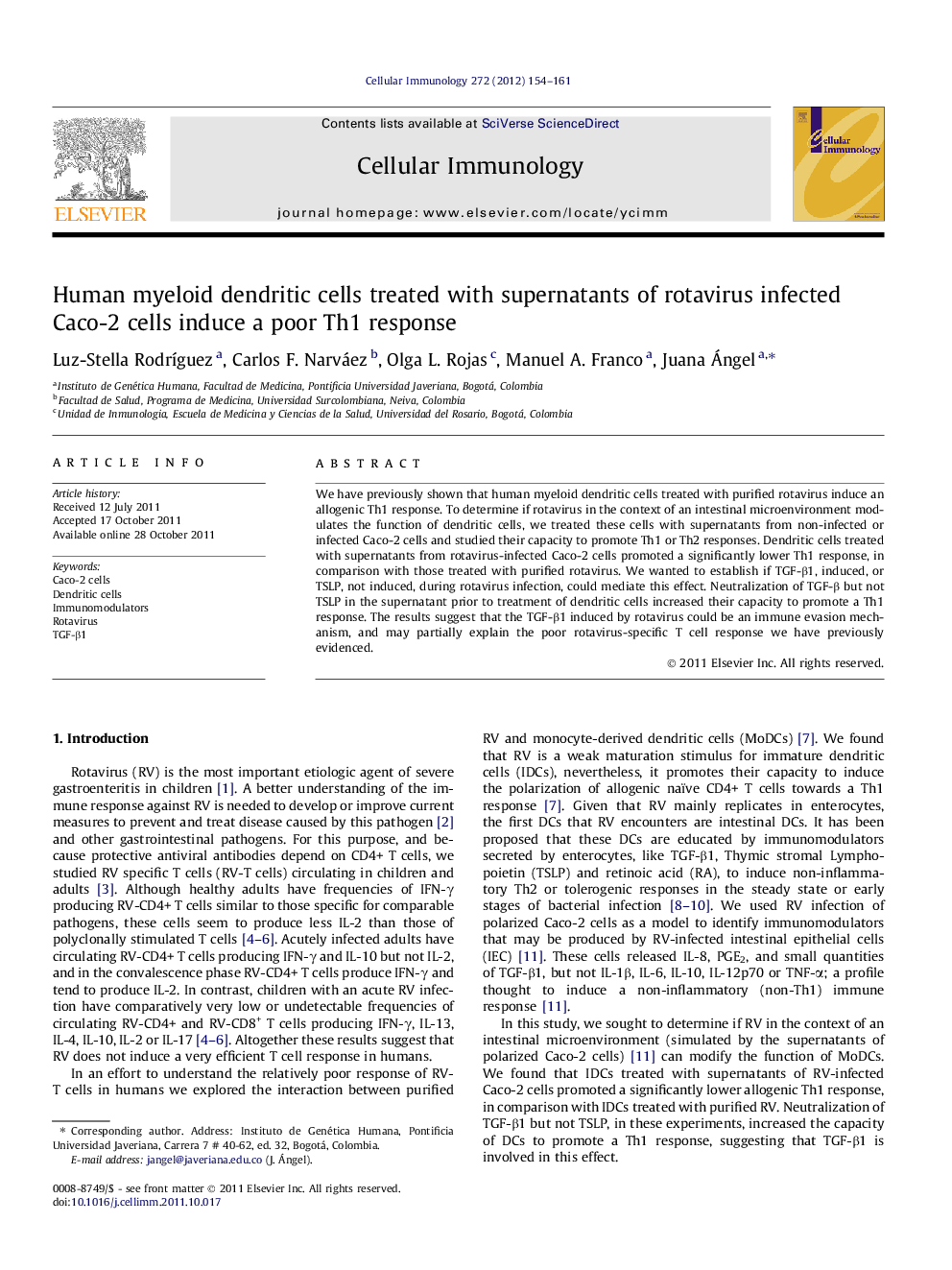| Article ID | Journal | Published Year | Pages | File Type |
|---|---|---|---|---|
| 2167384 | Cellular Immunology | 2012 | 8 Pages |
We have previously shown that human myeloid dendritic cells treated with purified rotavirus induce an allogenic Th1 response. To determine if rotavirus in the context of an intestinal microenvironment modulates the function of dendritic cells, we treated these cells with supernatants from non-infected or infected Caco-2 cells and studied their capacity to promote Th1 or Th2 responses. Dendritic cells treated with supernatants from rotavirus-infected Caco-2 cells promoted a significantly lower Th1 response, in comparison with those treated with purified rotavirus. We wanted to establish if TGF-β1, induced, or TSLP, not induced, during rotavirus infection, could mediate this effect. Neutralization of TGF-β but not TSLP in the supernatant prior to treatment of dendritic cells increased their capacity to promote a Th1 response. The results suggest that the TGF-β1 induced by rotavirus could be an immune evasion mechanism, and may partially explain the poor rotavirus-specific T cell response we have previously evidenced.
► Dendritic cells treated with purified rotavirus induce a Th1 response. ► Dendritic cells were treated with supernatants of rotavirus infected Caco-2 cells. ► These dendritic cells promoted a poor Th1 response. ► TGF-β1 present in the supernatants was partially responsible for this effect. ► TGF-β1 induced during RV infection of Caco-2 cells may be an immune evasion mechanism.
